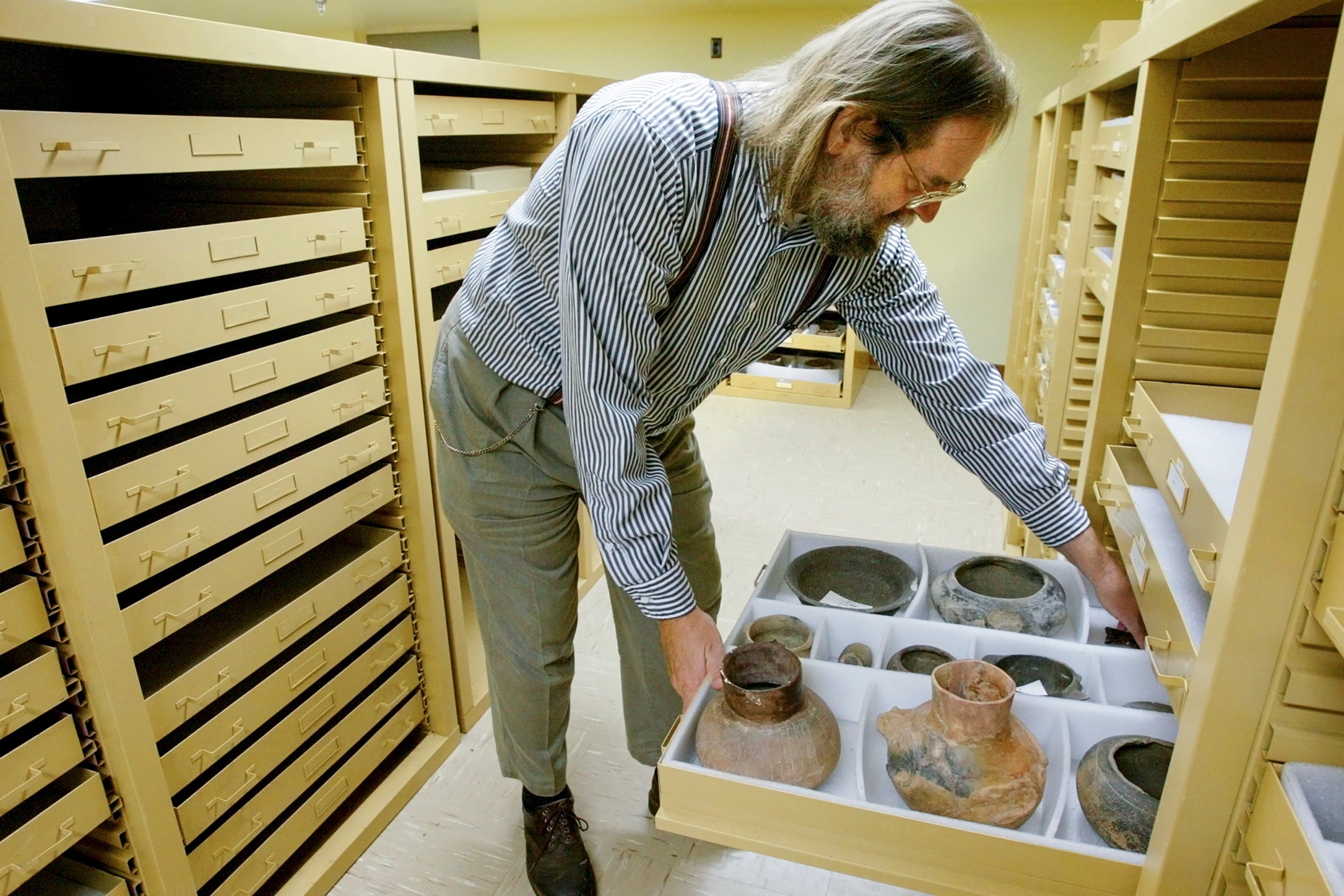Group finds site linked to tribes seeking return of remains
A federal advisory committee found evidence to culturally link remains and funerary objects taken from an ancient settlement in present-day Alabama with seven Native American seeking their return

Your support helps us to tell the story
From reproductive rights to climate change to Big Tech, The Independent is on the ground when the story is developing. Whether it's investigating the financials of Elon Musk's pro-Trump PAC or producing our latest documentary, 'The A Word', which shines a light on the American women fighting for reproductive rights, we know how important it is to parse out the facts from the messaging.
At such a critical moment in US history, we need reporters on the ground. Your donation allows us to keep sending journalists to speak to both sides of the story.
The Independent is trusted by Americans across the entire political spectrum. And unlike many other quality news outlets, we choose not to lock Americans out of our reporting and analysis with paywalls. We believe quality journalism should be available to everyone, paid for by those who can afford it.
Your support makes all the difference.Native American tribes fighting for the return of human remains and funerary artifacts excavated from an ancient settlement in present-day Alabama got help for their argument Tuesday when a federal advisory committee found the site to be culturally linked to their tribes.
The Native American Graves Protection and Repatriation Review Committee found a “preponderance of the evidence for cultural affiliation” between the remains and artifacts taken from the settlement founded 1,000 years ago and the Muskogean-speaking tribes known to live near there when European settlers arrived. The finding could help tribal efforts to have 6,000 sets of human remains and accompanying funerary objects turned over for reburial.
“We have requested the return of our ancestors for years, and the excuses for delay are over. With the finding that the remains and funerary objects discovered in Moundville are culturally affiliated with the seven tribes that have petitioned for their return, there is no reason to wait any longer. The time has come for our ancestors to rest in peace," said David Hill, Principal Chief of the Muscogee (Creek) Nation, said in a statement.
The Muscogee (Creek) Nation, Choctaw Nation of Oklahoma and five other tribes filed a petition under a federal law for the return of 5,982 “human remains of our ancestors” and funerary objects now held by the University of Alabama and its Moundville Archaeological Park.
Tribal officials said they petitioned the committee after being unsuccessful in getting the items returned.
“We stand before you today fighting for the return of our ancestors — ancestors who were removed from their place of rest for purposes of what — research, for development and often more common, yet horribly tragic, because archaeology was someone’s privileged hobby,” Tina Osceola of the Seminole Tribe of Florida said during a presentation to the committee.
The Alabama site, simply known as Moundville because of the large earthen mounds constructed there, was occupied from about 1020 to 1650, according to the presentation. While its ancient name is unknown, the city at its peak was one of the largest Native American settlements in North America according to the university. But it was largely abandoned around the time European explorers arrived in the region.
The 1990 federal Native American Graves Protection and Repatriation Act requires federally funded institutions, such as universities, to return Native American remains and cultural items to lineal descendants, Indian Tribes, and Native Hawaiian organizations. However, the return has been slow and complicated when sites, such as the Alabama settlement, predate written history.
The tribes argued Tuesday that there is linguistic, oral tradition and archeological evidence that the occupants of Moundville were their ancestors.
Muskogean-speaking tribes were the only tribes living within 140 miles (225 kilometers) of the Alabama site when European explorers arrived in the area, according to the presentation by tribal officials. They said oral traditions place tribal creation near Moundville or speak of large regional gatherings at centers like Moundville. They also said the DNA evidence shows a close genetic connection of the seven tribes.
Tens of thousands of indigenous peoples, including the Muscogee Nation, were forcibly removed from their ancestral homelands by the U.S. government between 1830 and 1850 during the devastating Trail of Tears.
One of the six committee members abstained from Tuesday's vote because the committee had not heard from university officials.
In a recent letter to tribal officials, James T. Dalton, executive vice president and provost of the University of Alabama, said that the university hopes to work with the tribes. Dalton said the University of Alabama will be providing more suggestions on the “most productive and efficient manner to address the pending joint request.”
While nearly 83,000 remains in the U.S. had been returned to descendants under the federal law, the National Park Service indicates remains of about 116,000 Native Americans are still held by institutions around the country. Many of those had not been culturally affiliated with a tribe.